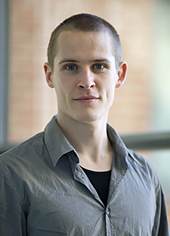
Uffe Schjødt, Associate Professor, School of Culture and Society, Department of the Study of Religion, Aarhus University
Uffe Schjødt is Director of the Religion, Cognition and Culture Research Unit at the Department of the Study of Religion (since 2016). He is currently working on the effects of cognitive resource depletion and sensory deprivation in religious interactions and on the application of the predictive coding framework in the study of religious practice and experience. His research fields include: Cognitive Science of Religion, Psychology of Religion, Experimental Cognitive Neuroscience. Areas of interest: Social cognition, executive processing, predictive coding, emotion, and embodiment in religious thought and behavior, e.g. rituals and prayer.
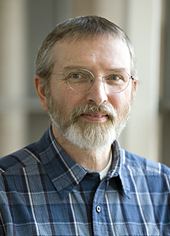
Armin W. Geertz, Professor Emeritus, Dr.Phil., School of Culture and Society, Department of the Study of Religion, Aarhus University
Armin W. Geertz is Professor in the History of Religions. He is former Director, currently Senior Consultant, of the Religion, Cognition and Culture Research Unit at the Department for the Study of Religion. He is chairmen of the board of the Interacting Minds Centre, Aarhus University.
He is Founding Member (Secretary General 2006-2010, President Elect 2010-2012, President 2012-2014, Past President 2014-2016) of the International Association for the Cognitive Science of Religion (IACSR). His main interests are cognitive theory in the study of religion; the religions of indigenous peoples; recent developments in contemporary religiosity, and method and theory in the comparative study of religions. He is editor of the monograph series Advances in the Cognitive Science of Religion (Equinox) and Senior Editor of Journal for the Cognitive Science of Religion (Equinox Publishing). He has served as editor-in-chief of four monograph series in Danish and English on the study of religion and served on the board of eight international journals on the study of religion. He is the author of over 300 publications.
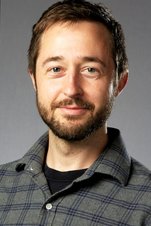
Aaron Lightner, PostDoc, School of Culture and Society, Department of the Study of Religion, Aarhus University
Aaron is an anthropologist studying human cognition and behavior from an evolutionary perspective. His PhD research investigated expertise, trust, and knowledge sharing in small-scale societies. Combining cross-cultural datasets and fieldwork with Tanzanian Maasai, he found that medicinal specialists often used supernatural ideas to organize their knowledge while providing useful services, like healing, to a clientele. In his postdoc at Aarhus, he is working with Benjamin Purzycki to use game theoretical models and cross-cultural datasets to research the minds of gods. His current research asks how and why supernatural appeals might serve different societies as culturally evolved tools for solving locally relevant social and ecological problems. This work hypothesizes that social and ecological variation might explain much of the variation in religious beliefs and behaviors that we see across cultures.
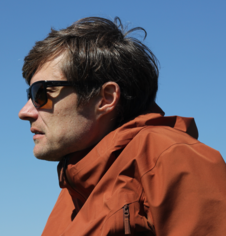
Kristoffer L. Nielbo, Associate professor, School of Culture and Society, PhD, Interacting Minds Centre, Aarhus University
In his graduate research, Kristoffer L. Nielbo combined machine learning and gestural analysis to the study of cultural behavior. Subsequently (2012), he became Post-Doctoral Research Fellow at the Religion, Cognition and Culture Research Unit (Aarhus University), and Cultural Evolution of Religion Consortium (University of British Columbia). Currently, he is responsible for developing humanities data and digital humanities initiatives at Aarhus University. As a humanities researcher, Kristoffer L. Nielbo has specialized in the application of quantitative methods and computational tools in the analysis, interpretation and storage of cultural data. His research covers two areas of interest: 1) automated text analysis and 2) computational modeling of cultural behavior. Both interests explore the cultural information space in new and innovative ways by combining cultural data and humanities theories with statistics, computer algorithms, and visualization.
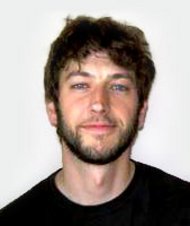
Benjamin Purzycki, Associate Professor, School of Culture and Society, Department of the Study of Religion, Aarhus University
Benjamin Purzycki began his Associate professorship at Aarhus University in 2019. His background is in the evolutionary and cognitive anthropology of religion, most specifically focusing on the role religious beliefs and behaviors play on human coordination and cooperation. He earned his PhD at the University of Connecticut (anthropology, 2012), subsequently worked as a post-doctoral research fellow at the University of British Columbia, followed by a Senior Researcher position at the Max Planck Institute for Evolutionary Anthropology. He has conducted fieldwork in the Tyva Republic (southern Siberia) and also managed large cross-cultural studies. Some of his current projects include examining the cultural variation in the kinds of things people associate with supernatural punishment and reward, modelling the co-evolution of territorial borders, landmarks, and ritual behavior, and the cognitive and ecological forces that contribute to the evolution of religious traditions in small-scale contexts.
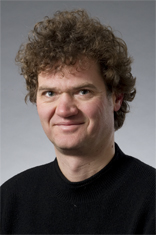
Jesper Sørensen, Associate Professor, School of Culture and Society, Department of the Study of Religion, Aarhus University
Jesper Sørensen is research programme director at the Department of the Study of Religion (since 1 January 2017). He has a MA in the History of Religions (1996) focusing on a cognitive investigation of the use of metaphor as a persuasive strategy in the Theosophical Society and a PhD in the History of Religions focusing on cognitive underpinnings of magical rituals. He is currently involved in several projects investigating action representations and event-segmentation underlying ritual behavior as well as a project on the cognitive aspects of charisma and religious authority. He was formerly an International Fellow at the Institute of Cognition and Culture, Queen’s University, Belfast (2005-6) as well as an International Research Professor at the Memory and Development Lab, Washington University, St. Louis (2006). He has published widely on areas in the cognitive science of religion mainly focusing on ritual behavior in general and magic in particular. He is the author of the AltaMira Press book A Cognitive Theory of Magic (2006). He is a founding member of the International Association for the Cognitive Science of Religion (IACSR) and its former Secretary General (2012-2014).

Anders Klostergaard Petersen, Associate Professor, School of Culture and Society, Department of the Study of Religion, Aarhus University
Anders Klostergaard Petersen is Professor at the Department of the Study of Religion. He specialises in briding the gap between the humanities and the evolutionary sciences. He was trained as a theologian and has published extensively on various topics such as early Judaism, New Testament, ritual studies, biocultural evolution and the cognitive science of religion. Recently he was invited to join the Academia Europaea where he will continue his work on advancing science and research in Europe. Petersen has lately co-written 'The Emergence and Evolution of Religion: By Means of Natural Selection', in which he with co-authors argue that both biological and sociocultural forms of selection dynamics are fundamental to explaining religion as a universal institution in human societies.
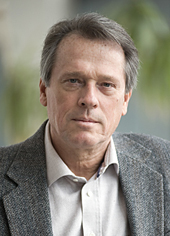
Jeppe Sinding Jensen, Professor Emeritus, Dr.Phil., School of Culture and Society, Department of the Study of Religion, Aarhus University
Jeppe Sinding Jensen is former Co-Director, currently Senior Consultant, of the Religion, Cognition and Culture Research Unit at the Department for the Study of Religion. He holds a BA in Classical Arabic and Islamic Culture (1978) and a BA & MA in the History of Religions (1982). For several years he worked on contemporary Islam, mostly from anthropological perspectives. He gradually changed research interest towards semiotics, methodology and the philosophy of science in the study of religion, especially in relation to comparative studies. His ‘Habilitationsschrift’ (2003) is an attempt to provide a theoretical foundation for comparative studies. Since around 1990 he has also taken an interest in cognitive studies of religion - as these support comparative endeavors - and lately he was Founding Member of International Association for the Cognitive Science of Religion and founding Editor-in-chief of the monograph series Religion, Cognition and Culture (London).